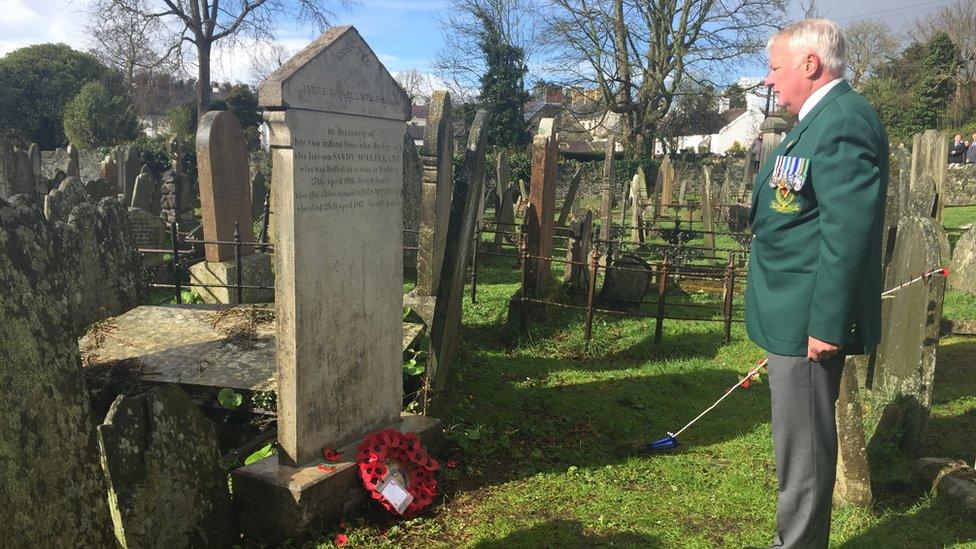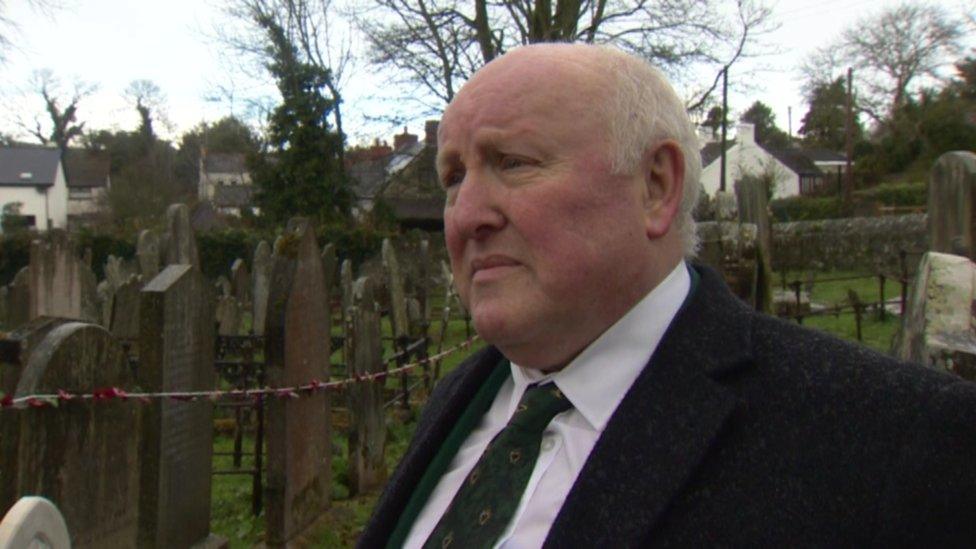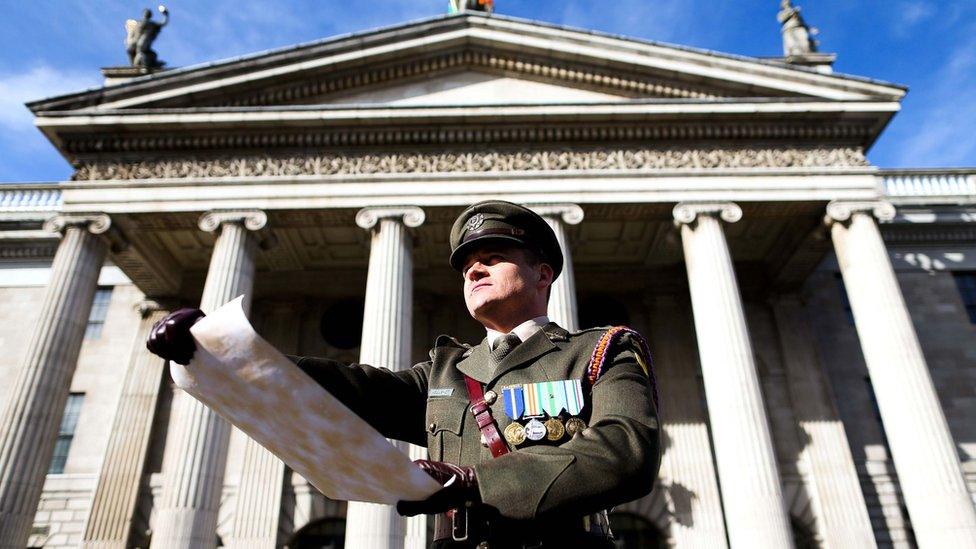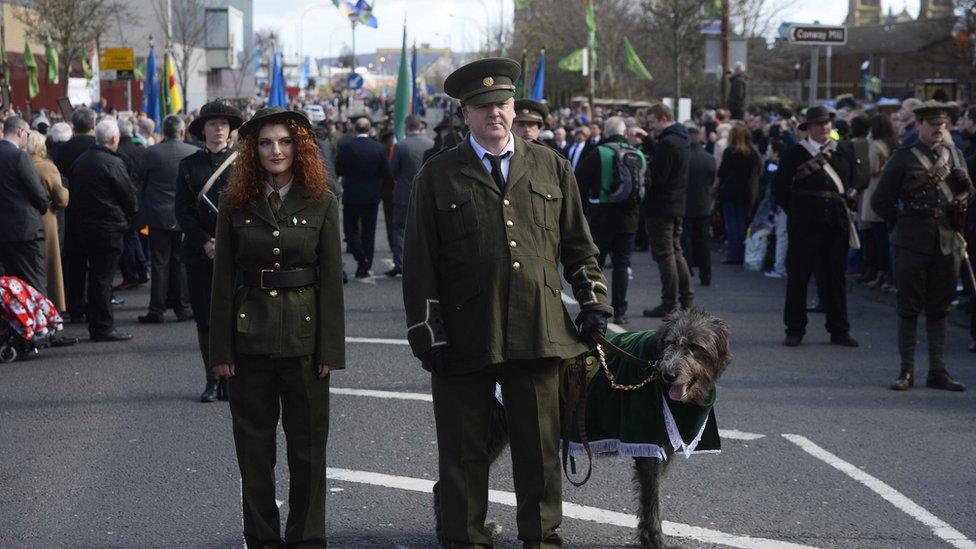Easter Rising: British military casualties commemorated in NI
- Published

The Royal British Legion laid a wreath on the grave of Sandy McClelland, a teenage British soldier who died in the Dublin rebellion
A service of remembrance for 116 British soldiers who died in the 1916 Easter Rising has been held in the County Down village of Greyabbey.
The commemoration was organised by the Royal British Legion.
It took place on the same day that the centenary of the Irish rebellion was marked with ceremonies in Dublin, Belfast and other towns and cities.
After a parade in Greyabbey, a wreath was laid on the grave of Sandy McClelland, of the Royal Irish Rifles.
The rifleman was a teenager when he was killed in Dublin on 27 April. 1916.
"Sandy McClelland thought he was on his way to the Western Front to join his brother with the Royal Irish Rifles," said event organiser Ronnie Ferguson.

Ronnie Ferguson from the Royal British Legion said British casualties had not been given the recognition they deserved
"As an 18-year-old, he ended up in Dublin fighting against his own people, as it were, and he died on the streets of what was a British city at the time.
"After all, Dublin was always known as the second city of the empire, so I'm sure he was gutted when he was sent to Dublin, to actually have to stand against his fellow people from the same island."
Read more about the 1916 Easter Rising
Mr Ferguson said he believed that the British casualties had not been given the recognition they deserved.
"I'm sorry to say that even this weekend we have heard very, very little about those soldiers who were killed and indeed those policemen who were killed as well."
Among those in attendance at the Greyabbey commemoration was the Ulster Unionist Party (UUP) leader Mike Nesbitt.
"Unionism cannot ignore the Easter Rising, it was such a seismic event for everybody on this island and the reverberations are still felt today," he said.

UUP leader Mike Nesbitt said unionists cannot ignore the Easter Rising as it led, in part, to the creation of Northern Ireland
The UUP leader added that the causes and the consequences of the 1916 rebellion should be critically examined by current generations.
Senior unionist politicians were invited to the Irish government's official commemorations in Dublin on Sunday but they declined to attend.
"From what I've seen of what has happened in Dublin today, I think they have made a huge effort to be inclusive - and very different from the 50th anniversary of the Easter rebellion, and that is to be welcomed," Mr Nesbitt said.
- Published27 March 2016

- Published27 March 2016
